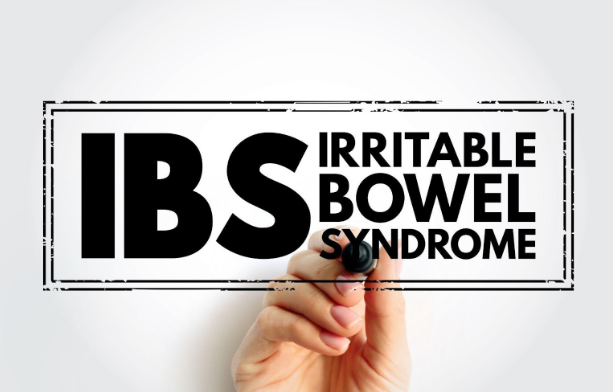Traveler’s Tummy: How to Prevent Digestive Issues While on Vacation

Traveling offers the excitement of new experiences, cultures, and cuisines. However, this excitement can sometimes be dampened by digestive issues, commonly referred to as "traveler's tummy." These issues can range from mild discomfort to more severe conditions, potentially disrupting your vacation plans. Understanding the causes and implementing preventive measures can help ensure a smooth and enjoyable journey.
Common Digestive Issues Faced by Travelers
Several digestive problems frequently affect travelers:
Traveler's Diarrhea
Traveler’s diarrhea is characterized by frequent, loose stools, often resulting from consuming contaminated food or water. This is particularly prevalent in regions where sanitation standards and water quality may differ from those at home. Street food, raw fruits and vegetables washed in contaminated water, and undercooked meats are common sources of infection.
Constipation
Constipation is another common digestive issue, particularly among travelers who experience sudden shifts in their diet, daily routine, and hydration levels. A disruption in the body's internal clock, combined with irregular meal times and decreased fiber intake, can lead to sluggish bowel movements. Long flights or car rides where movement is restricted can also contribute to reduced intestinal motility, making it difficult for waste to pass through the digestive tract.
Indigestion (Dyspepsia)
Indulging in new and exotic cuisines is a highlight of traveling, but overconsumption of rich, fatty, or unfamiliar foods can overwhelm the digestive system, leading to indigestion. Dyspepsia refers to discomfort or pain in the upper abdomen, often described as a burning sensation, bloating, or excessive burping. Eating too quickly, consuming large portions, or drinking alcohol in excess can all contribute to this condition.
Nausea
Nausea is a common complaint among travelers, and it can arise from various factors, including motion sickness, anxiety, or unfamiliar foods. Motion sickness occurs when there is a disconnect between what the eyes perceive and what the inner ear senses, leading to dizziness, nausea, and, in severe cases, vomiting. Long car rides, boat trips, or flights with turbulence can all trigger this unpleasant sensation.
Factors Contributing to Digestive Issues During Travel
Understanding the underlying factors that contribute to digestive problems can aid in prevention. The factors include:
Dietary Changes
Travel often involves indulging in local cuisines, which may include ingredients and preparation methods unfamiliar to your digestive system. Sudden increases in spicy foods, fats, or sugars can disrupt normal digestion.
Dehydration
Busy travel schedules might lead to inadequate fluid intake. Constipation can result from slow digestion caused by dehydration.
Altered Routine
Traveling disrupts regular eating, sleeping, and bathroom schedules, which can affect the body's internal clock and digestive processes.
Stress and Anxiety
The logistics of travel, including navigating new environments and adhering to schedules, can induce stress, which negatively impacts gut health.
Exposure to New Pathogens
Consuming food or water in different regions may expose travelers to bacteria and other pathogens their bodies aren't accustomed to, leading to illnesses like traveler's diarrhea.
Preventive Measures to Maintain Digestive Health While Traveling
Traveling introduces a variety of changes to routine, diet, and hydration levels, all of which can affect digestive health. However, by adopting mindful habits, travelers can significantly reduce the risk of experiencing digestive discomfort. Implementing the following strategies can help maintain optimal digestive function and ensure a more enjoyable trip.
Maintain Hydration
Proper hydration is one of the most important factors in digestive health. Water plays a critical role in breaking down food, absorbing nutrients, and facilitating smooth bowel movements. Dehydration can lead to constipation, sluggish digestion, and an increased risk of traveler’s diarrhea if impure water is consumed.
To stay hydrated, travelers should aim to drink at least eight glasses of water per day, adjusting for activity level and climate. Hotter temperatures and increased physical exertion may necessitate additional fluid intake. Carrying a reusable, filtered water bottle ensures consistent access to clean water, especially in regions where tap water may be unsafe.
Electrolyte-enhanced beverages can help maintain hydration levels, particularly if experiencing diarrhea or excessive sweating. However, sugary or artificially flavored drinks should be consumed in moderation, as they can contribute to bloating and digestive discomfort.
Consume a Balanced, Fiber-Rich Diet
A well-balanced diet rich in fiber is essential for maintaining regular bowel movements and preventing digestive distress. Fiber adds bulk to stools, making them easier to pass, and helps regulate the digestive system, reducing the likelihood of both constipation and diarrhea.
When traveling, it can be tempting to indulge in processed or convenience foods that are often low in fiber. However, incorporating fresh fruits, vegetables, whole grains, nuts, and seeds into meals can help counteract the effects of a disrupted diet.
Options such as oatmeal, salads, and whole-grain bread can be easily found in most locations. If fresh produce is unavailable, fiber supplements like psyllium husk can provide additional support. It is also important to introduce fiber gradually and increase water intake alongside it to prevent bloating and discomfort.
Stay Physically Active
Movement plays a key role in digestive health, as physical activity stimulates intestinal motility, encouraging regular bowel movements. Long flights, car rides, or extended periods of sitting can slow digestion and contribute to bloating or constipation.
Simple exercises such as walking, stretching, and even light yoga can help keep digestion functioning optimally. Taking short walks after meals can aid in gastric emptying and prevent sluggish digestion.
Travelers should also take advantage of sightseeing activities that involve movement, such as exploring cities on foot, hiking, or swimming. Performing gentle abdominal massages or seated stretches during long flights can also promote circulation and ease digestive discomfort.
Manage Stress Levels
The connection between the gut and the brain is well-documented, with stress being a major trigger for digestive disturbances. Travel-related stress—whether from long flights, unfamiliar environments, or changes in routine—can contribute to nausea, bloating, and irritable bowel syndrome (IBS) flare-ups.
Managing stress effectively can support gut health and improve overall well-being. Relaxation techniques such as deep breathing, meditation, and journaling can help alleviate travel-related anxiety. Setting aside time for restful activities, such as listening to calming music or practicing mindfulness, can also help reduce stress levels. Additionally, maintaining a relaxed approach to travel plans, allowing for flexibility, and ensuring adequate rest can all contribute to a more comfortable digestive experience.
Be Cautious with Food and Water Intake
Food and water safety is a primary concern for travelers, especially when visiting regions with different sanitation standards.
Contaminated food and beverages are common causes of traveler’s diarrhea and other gastrointestinal infections. Taking precautionary measures can greatly reduce the risk of ingesting harmful bacteria or parasites.
In areas where tap water is not potable, travelers should opt for bottled, filtered, or boiled water for drinking, brushing teeth, and even washing fruits and vegetables. Ice cubes made from unfiltered water should also be avoided, as they may contain pathogens. Choosing foods that are thoroughly cooked and served hot can help minimize exposure to bacteria. While fresh salads, raw seafood, and unpasteurized dairy products may seem appealing, they can pose a higher risk of contamination.
Street food, although often delicious and culturally significant, should be approached with caution. Travelers should observe the hygiene practices of vendors and opt for stalls with high customer turnover, as this suggests fresher food. Peeling fruits and vegetables personally, rather than consuming pre-cut produce, can further reduce the risk of ingesting contaminants.
Moderate Alcohol and Caffeine Consumption
Alcohol and caffeine, while enjoyable, can have significant effects on the digestive system. Excessive alcohol consumption can lead to dehydration, acid reflux, and inflammation of the stomach lining, increasing susceptibility to indigestion and discomfort. Similarly, caffeine, found in coffee, tea, and energy drinks, can act as a diuretic, exacerbating dehydration and potentially irritating the digestive tract.
Travelers should moderate their intake of these beverages, particularly if they are already experiencing digestive sensitivity. Drinking alcohol with meals and alternating with water can help minimize its dehydrating effects. For those sensitive to caffeine, opting for herbal teas, decaffeinated coffee, or coconut water can provide hydration without aggravating the digestive system.
Adhere to Regular Meal Times
Irregular eating patterns can disrupt the body’s natural digestive rhythm, leading to issues such as bloating, acid reflux and constipation. Maintaining a consistent meal schedule helps regulate digestion and supports optimal gut function.
Time zone changes, long flights, and busy itineraries can make it challenging to eat at regular intervals, but travelers should aim to have meals at predictable times as much as possible. Eating smaller, well-balanced meals throughout the day rather than consuming large portions sporadically can help prevent indigestion and keep the metabolism steady. Avoiding heavy meals close to bedtime can also reduce the likelihood of acid reflux and discomfort while sleeping.
Preparing for Potential Digestive Issues
Despite taking preventive measures, it's wise to be prepared for potential digestive disturbances:
- Pack Over-the-Counter Medications:
Consult a gastroenterologist and carry the prescribed medicines, including antidiarrheal medications like loperamide (Imodium) and antacids, to manage symptoms if they arise.
- Include Probiotics: Consider taking probiotic supplements to maintain a healthy balance of gut bacteria, which can support digestion and immunity.
- Stay Informed About Local Healthcare: Research healthcare facilities at your destination in case you require medical assistance.
While traveling can present challenges to your digestive system, understanding potential issues and implementing preventive strategies can significantly reduce the risk of discomfort.
If you're planning a trip and want to ensure your digestive health remains in top shape, our experts at
Northlake Gastroenterology Associates are here to help. We offer expert guidance on preventing and managing travel-related digestive issues, so you can enjoy your journey without discomfort.
Schedule a consultation with us today and travel with confidence, knowing your gut health is in good hands.
More Blogs












